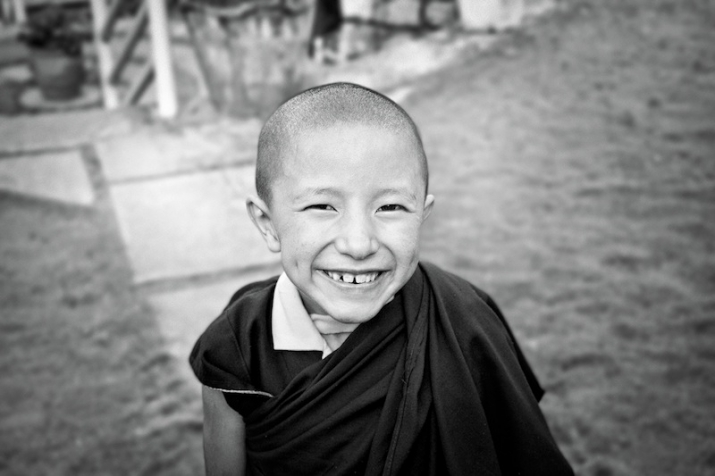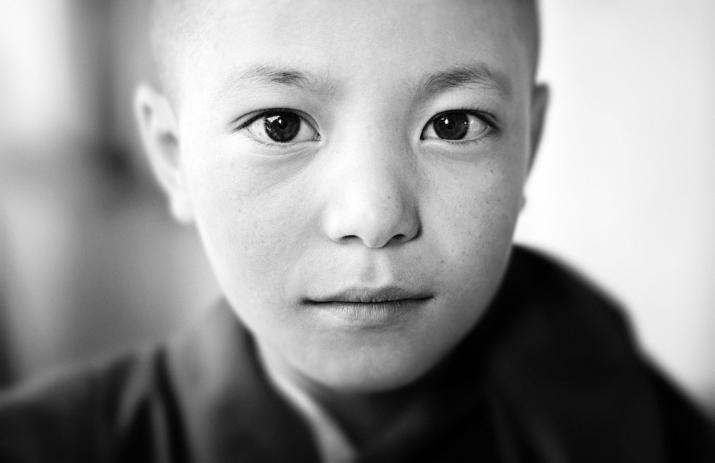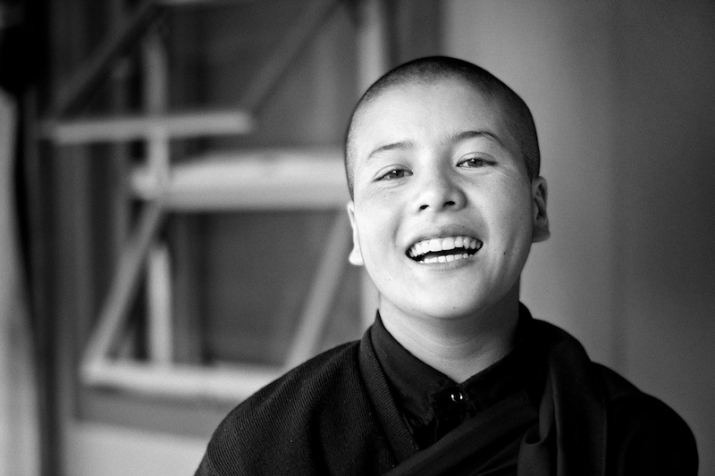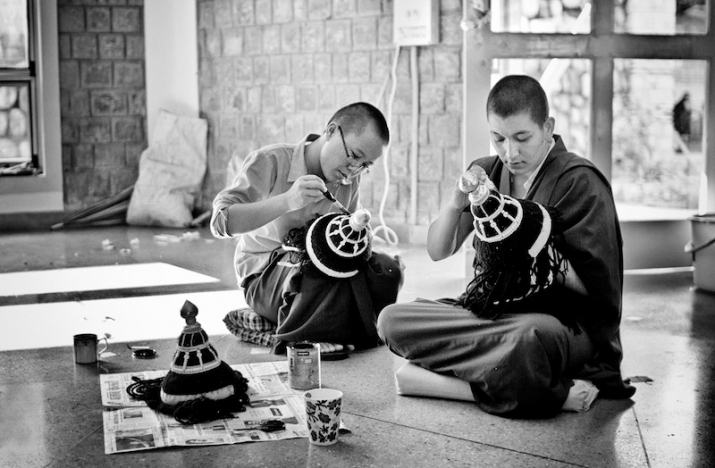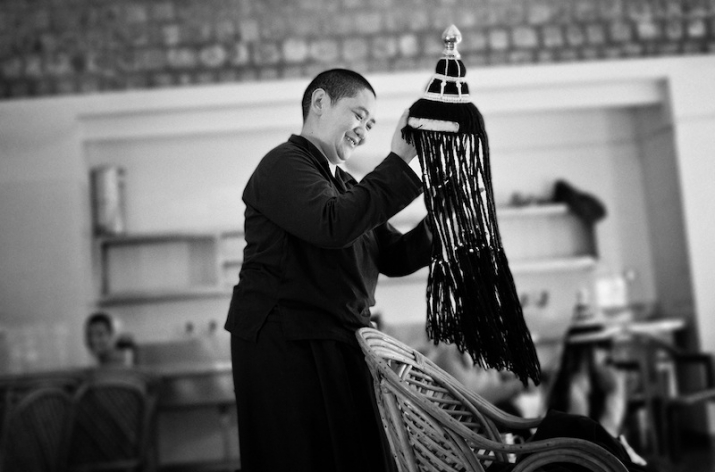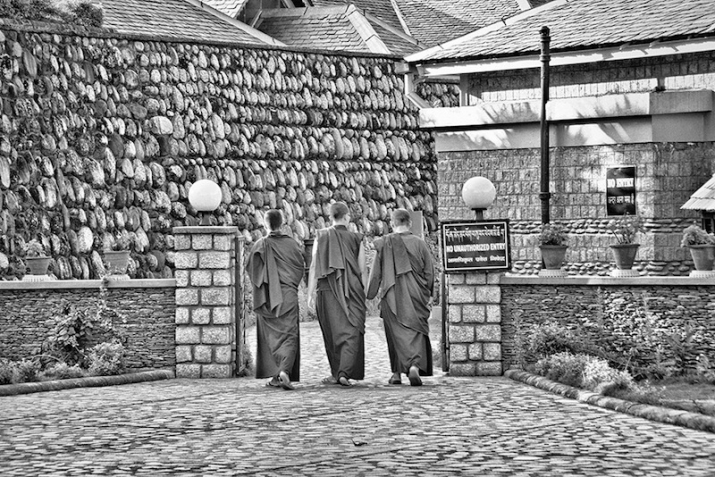Dongyu Gatsal Ling Nunnery
By Dharma Eye: Images and text, Victoria Knobloch
Buddhistdoor Global
| 2014-10-31 | “If we are serious about becoming the masters of our minds and emotions, instead of the slaves of our minds and emotions, if we are really serious about leading a life which will be of benefit for ourselves and others, we have to become selective. We cannot do everything in this lifetime. We cannot spend our nights in the discos and then get up at 5am to do our practice – well we could but it wouldn’t work very well. We have to decide in our lives what is really of importance to us and what is not. And simplify, that is renunciation . . .” - Jetsunma Tenzin Palmo
Dongyu Gatsal Ling Nunnery (DGL Nunnery) is located in India’s countryside near Palampur in Himachal Pradesh, around 60 kilometers from Dharamsala. The nunnery was founded in January 2000 by Jetsunma Tenzin Palmo, who was one of the first Westerners to be ordained as a Tibetan Buddhist nun. She previously spent twelve years living in a remote cave in the Himalayas, three of them in strict meditation retreat.
The atmosphere at Dongyu Gatsal Ling, which is surrounded by lush green paddy fields and the mighty Himalayas, is both peaceful and optimistic, with a palpable spiritual charge. Jetsunma’s vision in building the nunnery was to provide a quality education for nuns, to re-establish the yogini or togdenma tradition of the Drukpa Kagyu lineage, and to prepare some of the nuns undertaking higher philosophical studies to become teachers. At the moment there are 90 nuns living in the nunnery, and they are very happy to be there. No wonder—it is a very pleasant and welcoming place, built with great attention to detail, painted in bright colors, and well planted with flowers.
The nuns mainly come from Darjeeling, Lahaul, and Nepal. When asked why she wanted to become a nun, one young nun answered: “When I’m with nuns I feel happy, so I thought if I became a nun I could make people happy.” What better motivation can there be than that?
The nuns receive an exceptionally good education at Dongyu Gatsal Ling, with classes in Buddhist philosophy, Tibetan language, English, dance and other ritual, torma-making,* yoga, and much more. They receive profound meditation instruction, learn and practice debate, and in the monsoon season, undertake a two-month retreat.
However, the nuns do not only enjoy excellent training and decent living conditions at the nunnery, but also the gift of social freedom! Most women in rural areas have no choice but to get married, work in the fields, cook, clean, and bear children. The unfortunate ones suffer physical abuse from husbands who drink. Many women simply do not want that kind of life, preferring to do something useful and live meaningfully. They want to be of benefit both to themselves and to others, and to study and practice the Dharma. By becoming nuns, they certainly have much more freedom.
When I visited the nunnery in mid-September this year, the nuns were preparing for the upcoming visit of HH the 17th Karmapa, Ogyen Trinley Dorje. His Holiness, who is based quite close by at Sidhpur, would give Mahamudra teachings and bestow the White Tara empowerment at DGL at the end of the month. The nuns were working hard to prepare three sacred dances—the dance of the five classes of dakinis, the sacred dance of 16 female deities, and a final dance of auspiciousness—and were busy sewing and fashioning the traditional costumes. They were very much looking forward to His Holiness’s visit.
Inside the nunnery’s beautiful temple, one feels a strong feminine presence. Normally when one enters a temple the only visual examples of enlightened beings are male, which, in Jetsunma Tenzin Palmo’s view, gives women the wrong message. Instead, here one finds beautifully drawn images of the female disciples of the Kagyu poet-yogi Milarepa (1052–1135); many nuns from the time of the historical Buddha, Shakyamuni, together with their names; and numerous female protectors.
Jetsunma Tenzin Palmo’s achievement in providing all these possibilities for the girls and young women is outstanding, and is sure to influence and inspire many generations to come. The nuns value their opportunity very highly, feeling honored and happy to stay at the nunnery, and their deep gratitude and devotion are almost tangible. They truly appreciate everything Jetsunma has accomplished.
I asked Wangmo, a nun with whom I shared an enjoyable conversation during my stay, how she felt about being in the nunnery. She replied, “The nunnery is my home now. I feel very happy, and Jetsunma is our mother!”
*Tormas are made mostly of flour and butter, and are used as offerings in tantric rituals.
Victoria Knobloch is a member of Dharma Eye–The Buddhist Photographer collective. To learn more about Dharma Eye and Victoria’s work as a photographer visit: www.dharmaeye.com.

